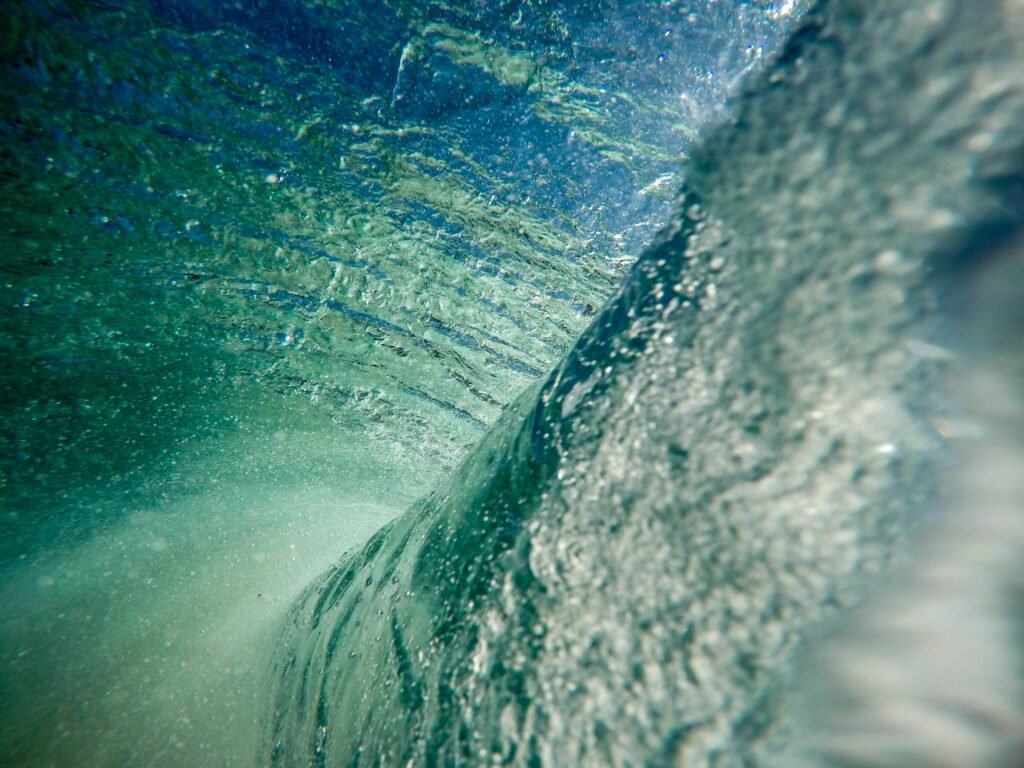Are you looking for a refreshing way to boost your emotional wellness? Look no further than water activities! Whether it’s swimming, paddleboarding, or simply taking a leisurely walk along the beach, immersing yourself in water can have a profound impact on your mental and emotional state. In this article, we will explore the various ways in which water activities can enhance your emotional well-being, and the science behind the soothing effects of water on our minds. So, grab your towel and get ready to dive into a world of tranquility and emotional rejuvenation!

This image is property of images.unsplash.com.
Benefits of Water Activities for Emotional Wellness
Physical and Mental Relaxation
Engaging in water activities provides an excellent opportunity for both physical and mental relaxation. As you immerse yourself in the water, the buoyancy creates a sense of weightlessness, relieving pressure from your joints and muscles. This physical relaxation can also lead to mental relaxation, allowing you to let go of stress and tension.
Stress Reduction
Water activities have been proven to be effective in reducing stress levels. The soothing sound of water, combined with the peacefulness of the surroundings, creates a calming atmosphere that helps to alleviate stress. Whether you’re swimming, paddleboarding, or engaging in other water-based activities, the rhythmic movements and serene environment can work wonders in relieving stress.
Improved Mood
Water activities have a positive impact on your mood. The release of endorphins during physical exercise, such as swimming or kayaking, contributes to a feeling of happiness and well-being. The serene nature of being in the water also helps to lift your spirits and improve your overall mood.
Increased Mindfulness
Engaging in water activities allows you to be fully present in the moment, promoting mindfulness. As you focus on the sensations of the water, the movements of your body, and the rhythm of your breath, you become more in tune with your surroundings. This heightened awareness can lead to a sense of calmness and clarity.
Enhanced Self-Esteem and Confidence
Participating in water activities can boost your self-esteem and confidence. Learning new skills and overcoming challenges in the water, such as mastering a new swimming technique or riding a wave while surfing, can be incredibly empowering. The sense of accomplishment and the belief in your abilities can translate to other areas of your life, leading to increased self-esteem and confidence.
Types of Water Activities for Emotional Wellness
Swimming
Swimming is one of the most accessible and beneficial water activities for emotional wellness. It offers a full-body workout and is a low-impact exercise that can be enjoyed by people of all ages and fitness levels. Whether you prefer leisurely laps or more intense sprints, swimming provides a sense of freedom, relaxation, and physical exercise.
Water Aerobics
Water aerobics is a great option for those looking for a low-impact workout that combines cardiovascular exercise with strength training. The resistance provided by the water enhances muscle tone and improves cardiovascular fitness, all while enjoying the buoyancy and therapeutic effects of water.
Surfing
Surfing is not only a thrilling and adrenaline-pumping water activity but also a great way to enhance emotional wellness. The act of riding waves requires focus, balance, and mindfulness, creating a flow state experience that can help you disconnect from the outside world and truly be in the present moment.
Paddleboarding
Paddleboarding combines elements of surfing and kayaking, offering a versatile and engaging water activity. Whether you choose to paddleboard on calm lakes or ride waves in the ocean, the meditative nature of standing on the board and propelling yourself through the water can have a calming effect on the mind.
Kayaking
Kayaking allows you to explore tranquil waterways, lakes, and even ocean coastlines. This water activity offers a blend of physical exercise and serenity as you paddle through the calming waters. Kayaking can provide an opportunity for introspection and a deep connection with nature.
Canoeing
Canoeing is a serene water activity that allows you to immerse yourself in nature while enjoying a peaceful journey. Whether you paddle through calm lakes or gentle rivers, the rhythmic movements and the soothing sound of water create a tranquil setting conducive to emotional wellness.

This image is property of images.unsplash.com.
Connection with Nature and the Water Element
Soothing Effects of Water
The sound and presence of water have a naturally soothing effect on the mind and body. Whether it’s the sound of gentle waves crashing on the shore or the rhythmic flow of a river, the calming properties of water help to reduce stress, lower blood pressure, and promote relaxation. Immersing yourself in water activities allows you to fully experience the soothing effects of this natural element.
Sense of Freedom and Liberation
Engaging in water activities can evoke a sense of freedom and liberation. As you let go of your worries and immerse yourself in the water, you allow yourself to detach from the demands of daily life. The feeling of weightlessness and the ability to move in all directions without constraints can create a profound sense of freedom and liberation.
Opportunity for Mindfulness in Nature
Water activities provide an excellent opportunity for mindfulness in nature. As you engage in activities such as swimming or kayaking, you become fully present in the moment, paying attention to the sensations of the water and the movements of your body. This mindfulness practice allows you to connect with nature on a deeper level and appreciate the beauty and tranquility of your surroundings.
Appreciation for the Beauty of the Natural Environment
Water activities offer a unique perspective and appreciation for the beauty of the natural environment. Whether you’re exploring underwater ecosystems while snorkeling or witnessing breathtaking sunsets from a paddleboard, being in and around water allows you to witness the wonders of nature firsthand. This connection with nature can evoke a sense of awe and gratitude, promoting emotional well-being.
Water Activities as a Source of Joy and Fun
Release of Endorphins and Dopamine
Engaging in water activities triggers the release of endorphins and dopamine, chemicals in the brain that are associated with pleasure and happiness. Whether it’s the feeling of exhilaration while catching a wave or the joy of splashing in the water with friends, water activities can create a natural high and leave you feeling uplifted and content.
Laughter and Playfulness
Water activities often involve elements of playfulness and laughter. Whether you’re jumping into the water, engaging in water fights, or simply floating and splashing around, the lighthearted nature of these activities can be invigorating and bring out your inner child. The laughter and joy experienced during water activities can have a positive impact on your emotional well-being.
Social Interaction and Bonding
Water activities provide an excellent opportunity for social interaction and bonding. Whether you’re participating in group water aerobics classes, joining a surfing lesson, or kayaking with friends, these activities encourage communication, cooperation, and camaraderie. The shared experiences and connections formed during water activities can enhance your emotional well-being and strengthen relationships.
Excitement and Adventure
Water activities offer a sense of excitement and adventure. Whether you’re tackling challenging rapids while canoeing or exploring hidden coves while paddleboarding, the thrill and adrenaline of these activities can provide a welcome break from routine and ignite a sense of adventure. The anticipation and excitement leading up to water activities can also boost your mood and overall well-being.

This image is property of images.unsplash.com.
Therapeutic Aspects of Water Activities
Hydrotherapy for Physical and Emotional Healing
Water has long been recognized for its therapeutic benefits in physical and emotional healing. Hydrotherapy, which involves the use of water for therapeutic purposes, can provide relief from various conditions such as chronic pain, muscle tension, and anxiety. Engaging in water activities can serve as a form of hydrotherapy, promoting relaxation, reducing inflammation, and enhancing overall well-being.
Water’s Calming Effect on the Nervous System
The calming effect of water on the nervous system is well-documented. The sound and presence of water activate the parasympathetic nervous system, which helps to counteract the effects of stress and promote relaxation. Engaging in water activities can have a profound impact on your nervous system, allowing you to unwind, reduce anxiety, and achieve a state of tranquility.
Sensory Stimulation and Integration
Water activities provide unique sensory stimulation and integration. The tactile sensations of water against your skin, the sound of waves crashing, and the visual beauty of the surrounding environment all contribute to a multisensory experience. Engaging your senses in water activities can help to improve sensory integration, promote self-regulation, and enhance overall emotional well-being.
Emotional Release and Catharsis
Water activities can serve as a form of emotional release and catharsis. The act of immersing yourself in water and engaging in rhythmic movements can help release pent-up emotions and tensions. Whether it’s diving into the water to let go of anger or shedding tears underwater as a form of release, water activities provide a safe and therapeutic outlet for emotional expression.
Water Activities for Stress Reduction
Immersion in Water as an Instant Stress Reliever
Immersing yourself in water has an instant stress-relieving effect. The weightless feeling and the soothing properties of water can provide immediate relief from stress and anxiety. Whether you choose to take a relaxing dip in a pool or submerge yourself in the ocean, the act of immersing yourself in water can lower stress hormones and promote a sense of calm.
Floating and the Feeling of Weightlessness
Floating in water offers a unique sense of weightlessness that can alleviate stress. The buoyancy of water supports your body, relieving pressure and allowing you to relax and let go. Whether you choose to float effortlessly on your back or use flotation devices for added support, the feeling of weightlessness can have a profoundly calming effect on the mind and body.
Water’s Natural Resistance for Physical Exercise
Water’s natural resistance provides an excellent opportunity for physical exercise, which is known to reduce stress. Water activities, such as swimming or water aerobics, allow you to work your muscles and increase cardiovascular fitness while enjoying the gentle resistance provided by the water. This form of exercise not only improves your physical health but also releases tension and promotes relaxation.
Rhythmic and Repetitive Movements
Water activities often involve rhythmic and repetitive movements, which can have a meditative effect on the mind and promote stress reduction. Whether you’re swimming laps or paddling a kayak, the repetitive nature of these movements can help you enter a state of flow, where your mind becomes fully absorbed in the activity, leading to a sense of peace and tranquility.
Building Resilience and Overcoming Fears
Confronting and Overcoming Water-related Phobias
Engaging in water activities can help you confront and overcome water-related phobias and fears. Whether you’re afraid of deep water, have a fear of drowning, or simply feel anxious about engaging in water activities, gradual exposure and support can help you build resilience and overcome these fears. Overcoming water-related phobias can be empowering and boost your confidence in facing other challenges in life.
Learning New Skills and Achieving Personal Goals
Water activities provide an excellent opportunity to learn new skills and achieve personal goals. Whether it’s learning to swim, mastering a new paddleboarding technique, or conquering big waves while surfing, the process of acquiring new skills and achieving goals can build resilience and enhance self-belief. The satisfaction and sense of accomplishment that come with overcoming challenges in the water can translate to other areas of your life.
Pushing Physical and Mental Limits
Engaging in water activities allows you to push your physical and mental limits. Whether it’s conquering challenging rapids while whitewater kayaking or participating in open water swimming competitions, pushing yourself outside of your comfort zone can lead to personal growth and increased resilience. The combination of physical exertion and mental determination required in water activities can help you develop grit and foster a greater sense of resilience.
Increased Self-awareness and Adaptability
Water activities require a high degree of self-awareness and adaptability. As you navigate through changing water conditions, such as waves or currents, you must be attuned to your body, surroundings, and the constant shifts in the environment. This heightened self-awareness and adaptability can translate to better self-management and resilience in other aspects of life.
Water Activities for Mindfulness and Meditation
Focus on Breath and Body Awareness
Water activities provide an excellent opportunity to focus on breath and body awareness, enhancing mindfulness and meditation practices. As you engage in activities such as swimming or paddleboarding, you can tune in to the rhythm of your breath and the movements of your body in the water. This focus on breath and body awareness can quiet the mind and deepen your connection with the present moment.
Being Present in the Sensations of Water
Engaging in water activities allows you to be fully present in the sensations of water against your skin. Whether you’re feeling the coolness of the water on a hot day or the gentle currents caressing your body, being present in these sensations can cultivate a state of mindfulness. As you immerse yourself in the present moment, you can let go of worries and distractions and experience a deeper sense of calm.
Surfing the Waves as a Flow State Experience
Surfing is a water activity that can facilitate a flow state experience. When you catch a wave and ride it smoothly, you enter a state of complete absorption in the present moment. As you navigate the shifting dynamics of the wave, your mind becomes fully focused, and time seems to stand still. Surfing the waves can be a highly meditative and mindfulness-inducing experience.
Combining Movement and Meditation in Water
Water activities provide an opportunity to combine movement and meditation. Whether you practice gentle movements in the water, such as tai chi or yoga, or engage in more dynamic activities like paddleboarding, you can integrate mindfulness and meditation into your water routine. By syncing your breath with your movements and fully engaging your senses, you can create a meditative space within the water and enhance emotional well-being.
Water Activities for Self-Reflection and Emotional Growth
Solitude and Quiet Reflection in Water
Water activities offer moments of solitude and quiet reflection. Whether you’re swimming in a calm lake or paddling on a serene river, the peacefulness of the water allows for introspection and self-reflection. Here, you can disconnect from the noise and distractions of daily life, allowing your thoughts and emotions to flow freely and promoting emotional growth.
Opportunity for Introspection and Deep Thinking
When engaging in water activities, you have the opportunity for introspection and deep thinking. The rhythm of the water and the undisturbed environment can create a conducive space for introspection and contemplation. As you paddle, float, or swim, you can delve into deep thoughts, explore your emotions, and gain insights about yourself and your life.
Emotional Processing and Resolving Inner Conflicts
Water activities can facilitate emotional processing and resolving inner conflicts. As you engage in these activities, you may find yourself confronting unresolved emotions or inner conflicts that have been buried deep within. The therapeutic nature of water allows for emotional release, helping you process and resolve these inner conflicts in a safe and supportive environment.
Enhanced Self-Understanding and Acceptance
Engaging in water activities can lead to enhanced self-understanding and acceptance. As you spend time in the water, you may develop a greater awareness of your strengths, limitations, and emotions. The nurturing environment of the water can encourage self-acceptance, compassion, and a deeper understanding of yourself, fostering emotional growth and well-being.
Incorporating Water Activities into a Regular Routine
Finding Accessible Water Recreation Areas
To incorporate water activities into your regular routine, start by finding accessible water recreation areas near you. Look for public pools, beaches, lakes, or rivers where you can engage in your desired water activities. Research local water sports clubs or gyms that offer water-based classes or lessons.
Establishing a Schedule and Setting Goals
Establishing a schedule and setting goals can help you incorporate water activities into your regular routine. Determine how often you would like to engage in water activities and set aside specific times for them. Whether it’s swimming three times a week or paddleboarding on weekends, having a schedule and goals can provide structure and motivation.
Selecting Appropriate Gear and Equipment
Choosing the appropriate gear and equipment is essential for enjoying water activities safely and comfortably. Depending on the activity, you may need items such as a swimsuit, wetsuit, goggles, snorkel, or paddleboard. Research and consult with professionals or experienced enthusiasts to ensure you have the necessary gear for your chosen water activity.
Seeking Professional Guidance and Lessons
If you’re new to water activities, seeking professional guidance and lessons can be beneficial. Professional instructors and coaches can offer guidance, teach proper techniques, and ensure your safety. Taking lessons can also help you build confidence, refine your skills, and make the most of your water activity experiences.
In conclusion, water activities offer a multitude of benefits for emotional wellness. From physical and mental relaxation to stress reduction and improved mood, engaging in water activities can enhance your emotional well-being. The connection with nature and the water element, the sense of joy and fun, the therapeutic aspects, and the opportunities for mindfulness, self-reflection, and emotional growth all contribute to the positive impact of water activities on your emotional wellness. By incorporating water activities into your regular routine and taking advantage of the various types of water activities available, you can experience the transformative power of water for your emotional well-being. So, dive in, paddle, and ride the waves – and discover the endless possibilities for emotional wellness in the water.
